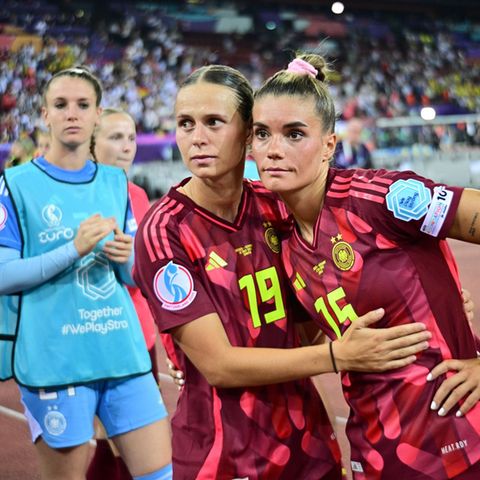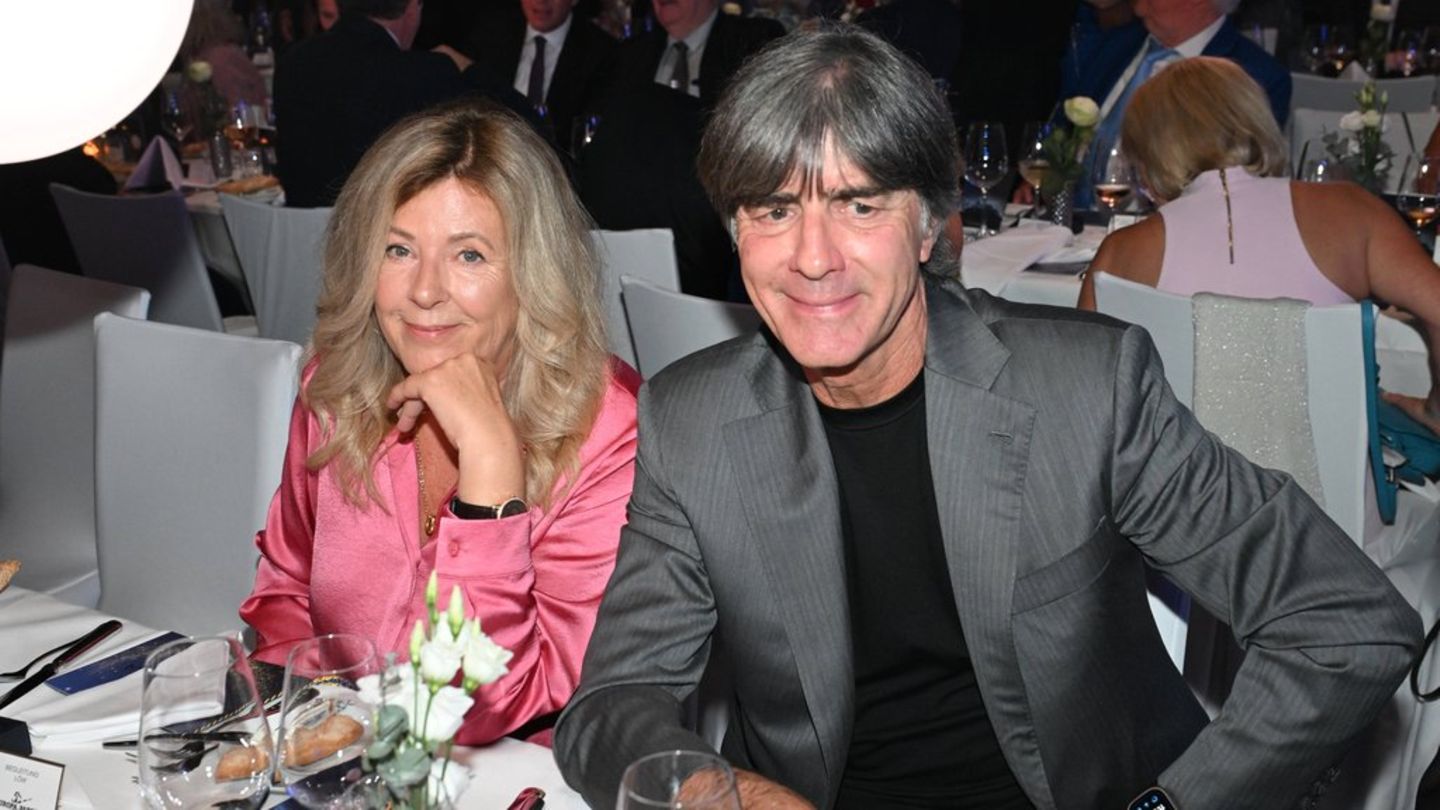Merkel’s memoirs
Barmaid and colorful blazer – the human being Angela Merkel
Copy the current link
Former Chancellor Angela Merkel always kept her private life private. In her memoirs she gives some insights that have hardly been known until now.
Meatballs, bear meat and a few strong men. If you leaf through the approximately 740 pages of former Chancellor Angela Merkel’s memoirs, you will find, in addition to her political legacy, small details that make Merkel visible to the people. It also becomes clear what a central role her confidant and co-author Beate Baumann plays in the 70-year-old’s political life. On Tuesday evening, the former CDU leader wants to present her book entitled “Freedom. Memories 1954 – 2021” at the Deutsches Theater in Berlin – moderated by journalist Anne Will.
A few private things from Angela Merkel’s life:
Past as a barmaid
Merkel describes herself that way. But no, she hasn’t hidden a disreputable past so far. Rather, she tells how her seminar group while studying physics in Leipzig began to organize a disco in the hallways of the university once or twice a week. “I was responsible for selling the drinks, so I worked as a barmaid in a sense. That gave me a lot of joy and also brought in some extra money.”
Past as a squatter
Actually it was just an empty apartment, but Merkel actually occupied it. And it happened like this: In the spring of 1981, she separated from her first husband Ulrich Merkel and initially moved in with a colleague. One day an acquaintance tipped her off that an apartment on Templiner Strasse in Berlin was unoccupied. “Friends persuaded me to occupy this apartment. That was anything but easy for me, but I had no choice; I couldn’t live with my colleague indefinitely and I had to do something.” The future Chancellor did not have a luxurious life. “I basically got my furniture from the bulky waste and gave it a little paint. I slept on wooden pallets on which I put a mattress. The standard of living was extremely modest, but I still felt comfortable.”
Merkel asked neighbors how much they paid in rent. She then transferred exactly this amount to the municipal housing authority. “No one refused to accept the money.” She quickly tried to legalize her illegal tenancy – which didn’t turn out to be easy, but finally succeeded in a roundabout way.
Merkel writes about her second husband: “We both loved and love nature and traveling. It was through him that I really got to know and understand the music of Richard Wagner.” The timing of their wedding also had a political aspect, as the book makes clear: “In conservative circles in my party, since 1990, there had been repeated criticism of the fact that I, as a divorced woman, was living in a non-marital partnership. I wanted to avoid any impression “Because I wanted to get married for career reasons, Joachim and I waited until the CDU was in opposition to take this step.” After the 1998 federal election, the time had come. “We got married on December 30, 1998.”
Merkel ended her first day as chancellor on November 22, 2005 with a gathering for which sausages, potato and coleslaw, meatballs and drinks were ordered from the chancellor’s kitchen. And even after the big tattoo on December 2, 2021 to say goodbye, a group met again in the Chancellery: “Like sixteen years before, there were sausages, meatballs and potato salad,” writes Merkel. “A circle closed.”
As Chancellor of all Germans, “I had to give it my all, be available and reachable at all times, and also have to deal with fires before they developed into a firestorm,” remembers Merkel. But there were more than enough moments to draw strength every day. “On days after traveling abroad with jet lag or after night sessions, it was wonderful to eat chicken, potato or lentil soup.”
In connection with German-Russian government consultations in April 2006 in Tomsk, Siberia, Merkel not only describes the dream of traveling from Moscow to Vladivostok on the Trans-Siberian Railway, the desire to travel by boat across one of the major Siberian rivers or Russia’s knowledge of German President Vladimir Putin (“His German was better than my Russian.”) “When I ate I was able to choose between a classic steak and one from the brown bear and I chose the adventure,” reports the former Chancellor. The bear meat tasted “very good, strong and like game”.
… and sandwiches with music
In contrast, things were less exotic during her school days. “Lessons started at half past seven. I got up around 6:15 a.m., breakfast only consisted of a sandwich in my hand and a cup of tea or Muckefuck, there was no time to sit down,” writes the former chancellor about her childhood days in her parents’ rectory. And: “At 6 p.m. there was dinner, mostly sandwiches, but sometimes semolina porridge with cherries or blueberries.”
“I always liked football,” writes Merkel, who repeatedly attended international matches as chancellor. “When I watched games in stadiums, I could sometimes sense from the moment a team stepped onto the pitch whether or not something was going to happen to them that day. The body language gave it away.” From the 2014 World Cup final, when Germany won the title in Rio de Janeiro, Merkel talks about short dialogues with Hungarian Prime Minister Viktor Orbán in the row of stands in front of her.
Relationship with Friedrich Merz
According to the register, the current CDU chairman and Union faction leader Friedrich Merz appears in four passages. Merkel described the situation quite succinctly when she told Merz after the 2002 federal election, which was narrowly lost by CSU candidate Edmund Stoiber, that she would oust him as chairman of the CDU/CSU parliamentary group: “Friedrich Merz was deeply affected.” Merz “was and is a brilliant speaker,” she writes about today’s candidate for chancellor. A few lines later, the Hamburg native adds dryly, Hanseatic style: “But there was a problem, right from the start: we both wanted to be bosses.”
Make a hairstyle out of hair
How important her public appearance was and is for Merkel becomes clear when she writes about her make-up artist. “She stood by me for countless hours – until today. She managed to make a hairstyle out of my hair,” she reports about Petra Keller, who had previously gained experience in television.
The secret of colorful blazers
Some of Merkel’s experiences from her years in the GDR still resonate today. The East smelled strongly of abrasive cleaners, floor wax and turpentine, she writes. She still has that smell in her nose to this day. “In general, for me the official GDR was the incarnation of tastelessness. Only imitations instead of real natural materials, never joyful colors.” And that had consequences: “Perhaps my current preference for colorful blazers can also be traced back to the original experience that I often missed strong colors in everyday life in the GDR.”
“Kayros” – God of favorable opportunity
Under the subtitle “Get out of the square,” Merkel reports on a small sculpture by the sculptor Thomas Jastram that she bought in 2019. She placed the small work of art wrapped in bubble wrap on a shelf in her office that was not visible to visitors entering. She decided to bring the figure “on deck” in her former chancellor’s office one day, “so that I would only put it up for everyone to see after my time in office; until then it would remain wrapped up in the corner on the shelf.”
The 42 centimeter high sculpture called “Kayros”, created by Jastram in 2017 from bronze, represents the god of favorable opportunities. “Kayros” was made for her. “I let go at the right time,” writes Merkel as she describes the background to her decision not to run again as party leader in December 2018 and not to run again as a candidate for chancellor in the 2021 federal election.
Merkel openly reports on a phenomenon that caused headlines and speculation towards the end of her 16 years as chancellor. Shortly before the end of the military honors during the inaugural visit of the new Ukrainian President Volodymyr Zelensky in Berlin on June 18, 2019, her thighs began to tremble slightly. During the national anthems, the tremors spread throughout the body. After a few days, “the process” repeated itself. Later, on similar occasions, she listened to the national anthems just sitting on a chair.
There were no neurological or internal findings, the physicist reports soberly. “The reaction of my autonomic nervous system was obviously to be understood differently.” An osteopath explained to her “that my body was in the process of releasing tension that it had built up over a long time, not only after the death of my mother in the spring, after which I had hardly found time to mourn, but also in the process of letting go from my offices.” Merkel ends the paragraph with a typical sentence: “Actually good news – if only my body hadn’t decided to let this process take place in front of the public.”
In the afterword, Merkel shares an insight that she says she thought about while writing. Today she finds it difficult to listen to some politicians “because they talk a lot but say little.” She often didn’t do things differently in the past. But she wants to “encourage young politicians in particular to be less afraid to give specific answers to specific questions.” This is all the more important in times “in which, thanks to digital possibilities and so-called social media, truths can be called lies and lies truths to an unprecedented extent, and this is also being exploited by people in leading positions in democracies.”
dpa
Source: Stern
I have been working in the news industry for over 6 years, first as a reporter and now as an editor. I have covered politics extensively, and my work has appeared in major newspapers and online news outlets around the world. In addition to my writing, I also contribute regularly to 24 Hours World.




